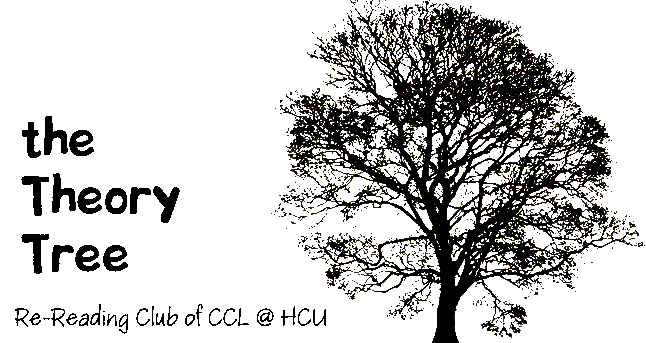Thus we channelled a regular class into our good old reading club, without missing a beat! Did anyone knew it happened? But oh yes, it did! ;)
So, yes, we are back in our reading club, and the themes of our reading this time around is
'Identity'
The first reading of Stuart Hall's
Who Needs 'Identity?' happened on Thursday 11 am at the Lecture Hall without much fanfare. The next reading is on Monday, 11th April, 2011. The essay is by Rogers Brubaker and Frederick Cooper and is titled,
Beyond "Identity". More on the essays and the authors below.
Stuart Hall
Stuart Hall is a Jamaican-born, Oxford-educated cultural theorist and one of the founding members of the
Birmingham School of Cultural Studies (now,
Centre for Contemporary Cultural Studies). Hall's work covers issues of hegemony and cultural studies, taking a post-Gramscian stance. He regards language-use as operating within a framework of power, institutions and politics/economics. This view presents people as
producers and
consumers of culture at the same time.
Read more on Hall and his works
here.
Rogers Brubaker
Rogers Brubaker is a sociologist who taught at UCLA from 1991. Rogers Brubaker has written widely on social theory, immigration, citizenship, nationalism, and ethnicity.
You can contact him at
brubaker@soc.ucla.edu (No!)
Read more on Rogers Brubaker
here and
here.
The essay is co-written by historian
Frederick Cooper, who specializes in colonialization, decolonialization and African history. Cooper received his Ph.D from Yale University in 1974 and is currently professor of history at New York University.
Who Needs 'Identity'?
Though written as an introduction to a book,
Questions of Cultural Identity, edited by Stuart Hall and Paul Du Gay, the essay began to take a life of its own, anthologized in critical readers of cultural studies as well as identity.
The essay tries to recover Identity from its present day redundancy. Essentialized identities of the Cartesian metaphysics are now looked down upon and advanced theories of postmodernism renders Identity as a superfluous category. So then, he asks, Who Needs Identity?
Hall tries to create a history of this concept through cultural theory. He links Althusser, Lacan, Foucault and finally, Butler to weave a new idiom to speak about identities and its relevance to present day social analysis. On its way, Hall also brilliantly summarises these theoreticians's works, helping the readers adjust to his new history.
Read the essay (PDF)
Beyond "Identity"

Brubaker's and Cooper's essay features in Rogers Brubaker's book,
Ethinicity Without Groups (2004), where he has critically engaged prevailing analytical stances in the study of ethnicity and nationalism and sought to develop alternative analytical resources.
Brubaker and Cooper also starts from the same premise as Hall, but goes on to radically different conclusions. While, for Hall, there is some hope in salvaging the lost pride of identity, Brubaker and Cooper couldn't be persudaded to think of identity as indispensable. They suggest a new idiom to talk about issues that are usually cloaked under the umbrella term
identity, making it a very contradictory concept, deprived of any actual content.
Read the essay (PDF)
So, there we have it, two essays, and yes, please club, read the essays and come to the CCL department at 11 am, on Monday. The Reading Club, is full on!
You might have noticed that we have gone for a image-heavy post this time. Very much inspired by Jananie's (yes!) wonderful photo+painting blog
Of kills, quills and pills.







